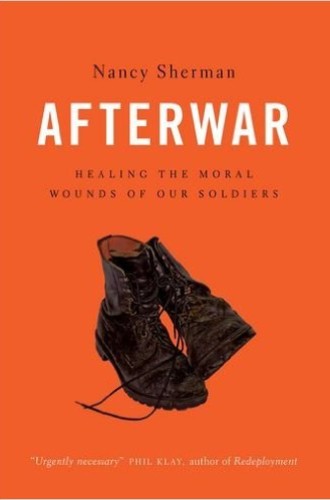Afterwar, by Nancy Sherman
"We are a part of the homecoming—we are implicated in their wars,” writes Nancy Sherman, one of the leading voices in the emerging discourse concerning military moral injury. Sherman seeks to mobilize a broad base of societal engagement with the postdeployment homecomings of our nation’s service members. The message of her book Afterwar is clear: society must understand the totality of human experiences of war, including its moral dimensions.
Afterwar is chiefly concerned with the moral wounds of war, which are coming to be called moral injury: the psychological, physiological, and spiritual consequences of having taken actions that transgressed and overwhelmed one’s moral standards and expectations. Moral injury can also be generated by more general conditions in which one’s sense of personal responsibility is activated, generating emotions such as shame, guilt, disgust, or rage.
Sherman asserts that “moral wounds demand moral healing,” and her vision of moral repair is a relational one that necessitates interpersonal engagement. She criticizes superficial nationalistic gestures that celebrate the troops but fail to honor their complex experiences. She was inspired by spending time with veterans at Walter Reed Medical Center, and she sees herself as participating in a larger community of empathetic listeners. Sherman’s book does not consider the role of religious congregations, but her vision of engaged communities of empathy and hope would resonate with many church congregations.





